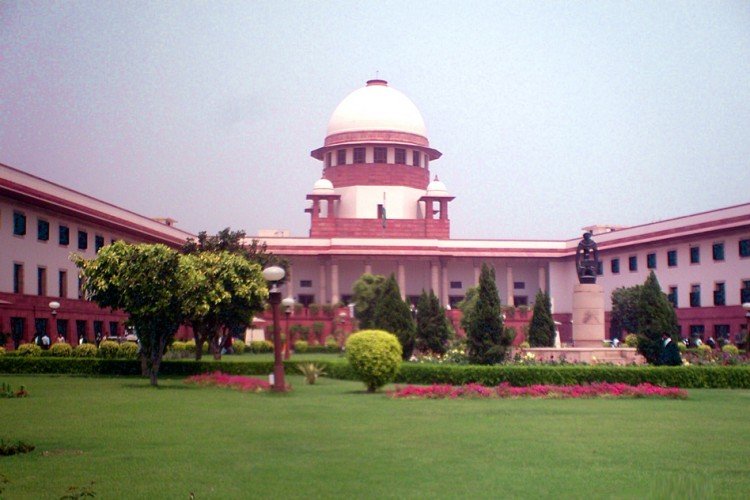
Image Source: Wikipedia
India Has 17 Judges For 10 Lakh Citizens, One Of The Lowest In The World
18 April 2016 5:28 AM GMT
“Justice delayed is justice denied”
We all are familiar with stories of cases being dragged for years and years before the judgement is delivered. The most important benefactors of the delayed justice system of India are the guilty itself. Too often, the guilty rely on the slow judicial process that ensures they are not punished for a long long time. So why and where does Indian Judiciary lacks? What are the numbers that need immediate attention?
The much celebrated Judiciary of India, however, lacks the reach and scale to serve all the people of India. Take, for instance, India right now has 17 Judges per a million people. This number is crucial and needs to be higher for speedy trials and judgements. This low number is precisely the reason why cases drag for years and years before the judgement is delivered. As the saying goes “Justice delayed is Justice denied”. The same number is 107 in the United States, 75 in Canada, and 42 in Australia.
Nepotism and corruption in Judiciary?
Despite various governmental reports suggesting to increase this number to 50 per million, little has been done on that front. The number of vacancies in various levels of judiciary mounts to 4,403 in subordinate courts_ and the number of backlogged cases sums up to 3 crores. There seems to be something murky in the recruitment of judges also. Many of the people who are selected from various exams turn out to be sons and daughters of existing judges. Corruption and nepotism seem to have wrecked havoc in the Judiciary. It is only the Judiciary which could purge itself of these anomalies.
Importance of Indian Judiciary
The Indian Judiciary has been at the forefront of bringing about change in society, its landmark judgements are the testimonial to that. The Judiciary is one of the most important pillars of Democracy, keeps alive the rule of law and maintains a fine balance by checking the excesses made by the legislature and the executive. Any Indian can directly seek recourse from the supreme court if and when his/her fundamental right is violated.
The Logical Indian appeals to the government and the judiciary to address the issue with urgency, speedy judicial recourse is paramount in maintaining the rule of law.
 All section
All section













